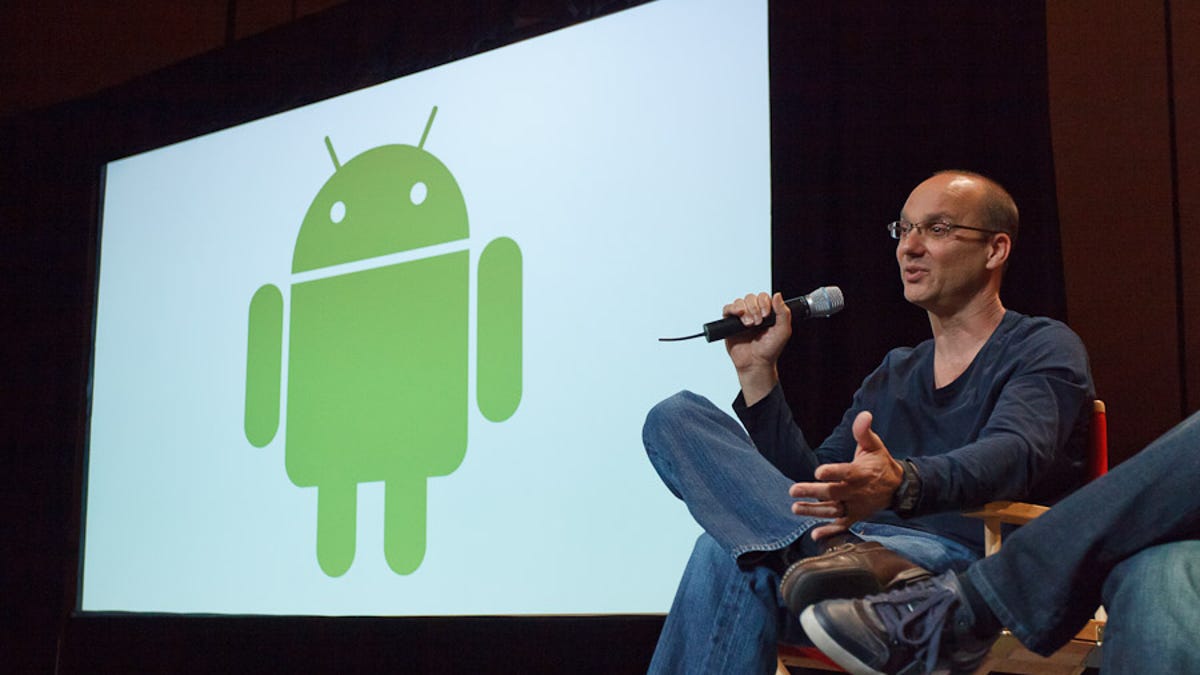What could be Andy Rubin's next moonshot at Google?
The Android boss stepped down today in a surprise move after eight years heading development of the mobile OS. CEO Larry Page is exhorting him to jump into another big project.

Andy Rubin is gone from the Android team, but not forgotten at Google. According to a blog post today from Google CEO Larry Page, Rubin will "start a new chapter" at the company. "Andy, more moonshots, please!" Page exhorted.
Rubin is no stranger to moonshots. He has a record over the past two decades of taking on ambitious, complex projects focused on changing how consumers use technology. Born in 1963, Rubin began his career as a robotics engineer at optics maker Carl Zeiss AG. He then landed at Apple, working on research projects that led him to join General Magic, a pioneering company developing a software platform for mobile devices.
General Magic flopped, and Rubin joined other refugees from the company to develop what became Web TV, a device that connected the Internet to televisions. Microsoft acquired the company in 1997 for $425 million, and Rubin stayed on for a while.
His next move was to co-found Danger Inc. in 1999. The company developed what became known as the Sidekick, a phone and messaging device with a slide-out keyboard that appealed to a younger demographic. Microsoft subsequently acquired Danger in 2008, and the Sidekick platform was discontinued last year.
In 2003, Rubin left Danger to start Android Inc., where he set out to make a smarter mobile phone long before the first Apple iPhone appeared. He sold the company to Google only 22 months later, but the first Android phone didn't appear until the fall of 2008, nearly a year after the first iPhone shipped.
Since 2005, Rubin has been leading Google's wildly successful mobile phone platform efforts. After a slow start, more than 750 million Android phones have been sold.
Google and Rubin aren't giving any explanation beyond the official blog post for why he exited the Android group after eight years at the helm. His longest stint at one job before leading the Android team was four years, so perhaps he became less interested in running a maturing business. In a letter to Android partners today, Rubin expressed his desire to be more entrepreneurial:
I am an entrepreneur at heart and now is the right time for me to start a new chapter within Google. I am amazed by what we have accomplished from those early days (not so long ago!), and remain passionate about the power of a simple idea and a shared goal -- an open source platform freely available to everyone -- to transform computing for people everywhere.
Page is looking for another moonshot from Rubin. That's figurative, of course. Rubin's history indicates that he prefers tinkering with robots and consumer gadgets and running his own show. While running the Android team, Rubin was the first to establish a business unit at Google that included both engineers and business executives. Perhaps Page thought that it was time to harmonize the Chrome and Android groups under one leader.
With the Android mobile platform behind him, Rubin can jump into a new startup within, or without, Google. He could take up residence at Google's secretive X Lab, which hatched the ambitious Google Glass and self-driving cars, or start another company. Raising money would not be a problem. It's likely that wherever and whenever Rubin resurfaces, it will be with some new kind of smart gadget for the masses.

